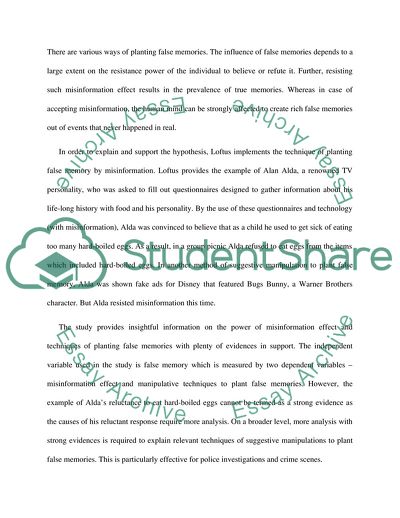Cite this document
(False Memory Term Essay Example | Topics and Well Written Essays - 1500 words, n.d.)
False Memory Term Essay Example | Topics and Well Written Essays - 1500 words. https://studentshare.org/psychology/1868545-inquiry-paper
False Memory Term Essay Example | Topics and Well Written Essays - 1500 words. https://studentshare.org/psychology/1868545-inquiry-paper
(False Memory Term Essay Example | Topics and Well Written Essays - 1500 Words)
False Memory Term Essay Example | Topics and Well Written Essays - 1500 Words. https://studentshare.org/psychology/1868545-inquiry-paper.
False Memory Term Essay Example | Topics and Well Written Essays - 1500 Words. https://studentshare.org/psychology/1868545-inquiry-paper.
“False Memory Term Essay Example | Topics and Well Written Essays - 1500 Words”. https://studentshare.org/psychology/1868545-inquiry-paper.


